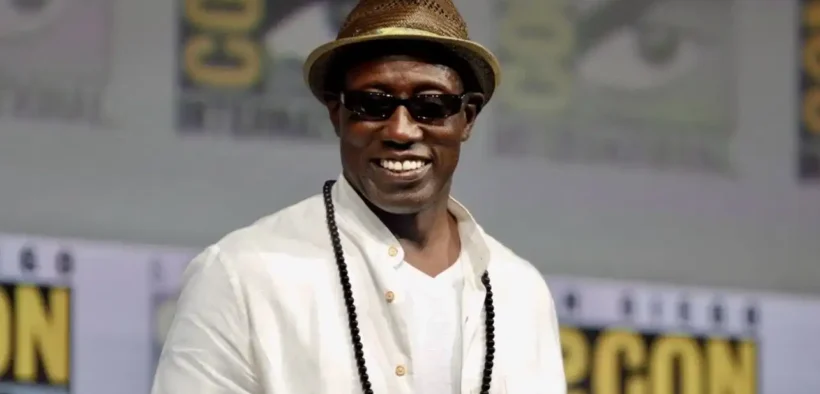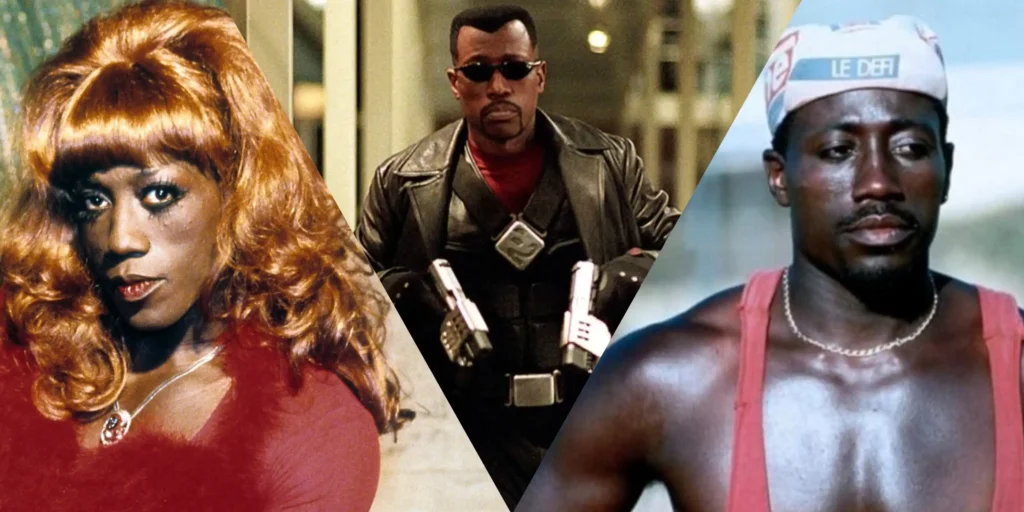Wesley Snipes: The Black Icon Who Rewrote Hollywood’s Rules
Share

Wesley Snipes was born July 31, 1962, in Orlando, Florida, but grew up in the gritty South Bronx. It’s this upbringing, navigating both Black Southern roots and New York hustle, that gave him the versatility he brings to every role.
Snipes trained at the prestigious Fiorello H. LaGuardia High School of Music & Art and Performing Arts and later earned a BFA from SUNY Purchase.
His childhood wasn’t easy, but martial arts (which he began at age 12) and the performing arts gave him purpose and discipline. Today, he’s a fifth-degree black belt in Shotokan karate and holds advanced rankings in several other martial arts.
Breaking In & Rising Up: ‘80s and ‘90s Stardom
Snipes made his first splash in sports comedy Wildcats (1986), but Spike Lee soon recognized his charisma and talent, casting him in Mo’ Better Blues (1990) and Jungle Fever (1991).
But it was the unforgettable New Jack City (1991) that cemented Snipes as a force: as Nino Brown, he became the face of Black cinema’s new era, bold, flawed, unapologetic.
From there, Snipes was everywhere:
- White Men Can’t Jump (1992) with Woody Harrelson—a buddy comedy classic
- Passenger 57, Demolition Man, and Rising Sun—he proved Black men could headline big-budget action films.
- To Wong Foo, Thanks for Everything! Julie Newmar (1995)—showing his comedic and dramatic range.
In 1998, Snipes redefined Black masculinity on-screen as Blade, the half-vampire, half-human superhero who hunts his own kind. Long before the MCU, Blade was a box-office smash, inspiring a wave of comic book adaptations.
Snipes’ physicality and presence, rooted in real martial arts mastery, gave the character a rare authenticity. He reprised the role in Blade II (2002) and Blade: Trinity (2004).
In 2024, he made history by returning as Blade in Deadpool & Wolverine, setting a Guinness World Record for the longest live-action Marvel character career, showing Hollywood and fans he’s still “Marvel Daddy.”

Producing & Creating Black Stories
Snipes wasn’t satisfied with acting alone. In 1991, he launched Amen-Ra Films and later Black Dot Media, production companies focused on empowering Black talent and narratives.
He wanted more Black stories, by us and for us.
He’s also dabbled in writing: his fantasy novel Talon of God (2017) brings supernatural and urban themes together with a Black protagonist at its heart. In comics, he co-created After Dark (2010).
Snipes knows setbacks. In 2008, he was convicted on federal tax charges and served nearly three years in prison—a period he’s spoken about with humility, emphasizing faith, family, and resilience.
But he bounced back, with stand-out roles in:
- Dolemite Is My Name (2019), stealing scenes from Eddie Murphy
- True Story (2021, Netflix), playing against Kevin Hart in a dark, layered role
- Producing and starring in Back on the Strip (2023)
His Impact
- Box Office: His films have grossed over $1.6 billion worldwide.
- Martial Arts: He changed how Black action heroes are seen, merging real combat skill with acting, and inspired the next generation of Black martial artists.
- Representation: Snipes’ insistence on multidimensional Black characters broke stereotypes and opened doors for others, from Michael Jai White to Chadwick Boseman.
- Community Work: He’s quietly supported Black arts initiatives and urban youth programs, reflecting his belief in giving back.
Personal Life
Snipes’ faith journey is just as layered, raised Christian, he converted to Islam in 1978 but later left the faith. He speaks often about spirituality, discipline, and staying grounded despite fame’s pressures.
Marvel’s much-anticipated Blade reboot (with Mahershala Ali) has Snipes’ blessing, though he’s teased fans about wanting a cameo or a behind-the-scenes role. Despite delays, he’s still revered as the O.G. Blade.
Off-screen, Snipes continues to develop content, produce, and advocate for Black creatives breaking into Hollywood.
Wesley Snipes, now in his 60s, is as hungry as ever. He says:
“The mission has always been to open doors for the next generation… to show there’s no single way to be Black, to be strong, or to be a hero.”


















